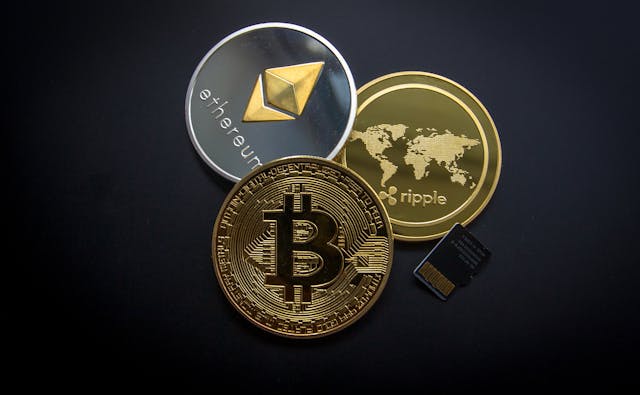In the realm of gambling, the evolution from physical casinos to online platforms has been swift and transformative.
Take the shift from physical to online casinos. If it seemed like a paradigm shift for those who go gambling, it is not just a significant leap forward which happened by itself. Now we’re at another juncture: decentralized casinos powered by blockchain technology. This cutting-edge shift promises a whole new dimension of transparency and fairness, but it also brings its unique set of challenges. So, let’s dive into the intricate world of decentralized casinos, examining their advantages, disadvantages, and potential future impact.
Unveiling the Decentralized Gambling Landscape
Trust: The New Currency
Let’s start with the most alluring aspect of decentralized casinos: trust. Traditional platforms, despite stringent regulations, often face skepticism about game outcomes. Think of digital card games or dice games; there’s always an element of uncertainty about the algorithms behind them. Decentralized casinos on the blockchain leverage smart contracts, enabling automatic and transparent outcome determinations. Every transaction, every bet, and every game result is documented on the blockchain, immutable and verifiable. In a world where integrity is paramount, this transparency acts as a bedrock for player confidence.
Additionally, decentralized casinos are open to anyone with an internet connection—no longer limited by geographical boundaries or traditional banking constraints. This inclusivity lends itself to a broader, more diverse global user base, democratizing participation in the gamblng ecosystem.
Provably Fair’s and Seamless Transactions
Blockchain casinos, in some cases, also use provability models even in games instead of just deposits. Consider a game of roulette. In a traditional setting, it is expected that you trust all their instructions in the case of a spin result dispute while delegating the outcome to an opaque system. Conversely, a blockchain casino might provide real-time data and ethnicity metrics about the wheel spin, so you can see exactly the factors that influenced the result for yourself.
These casinos eliminate intermediaries like credit card companies or financial institutions, making transactions faster and cost-effective. Although the benefits of reduced costs and increased transparency, transactions are comparatively slow and expensive. However. The good news is that faster and cheaper transactions through side chains for smart contracts-based transactions and platforms are being developed
Realistic Expectations and Downward Spiral Anomalies
Betting on Growth: Understanding Real-world Challenges
The transition to decentralized gambling isn’t without its hurdles. Regulatory compliance remains a significant challenge, as many jurisdictions haven’t evolved their gaming laws to accommodate blockchain technology. Player protection, privacy concerns, and anti-money laundering regulations are equally demanding factors. Operators must navigate these complexities carefully to ensure long-term sustainability and legal adherence.
Cultural apprehension towards change is another factor. For instance, consider those who’ve spent decades playing at traditional casinos—they may be slower to adopt blockchain platforms.
Bridges Between Worlds
Decentralized casinos are not just about technology; they are about people. Consider Joe, a veteran gambler who prefers the thrill of a live poker game over online slots. He might find it hard to imagine giving up on the tactile experience of physical cards and chips in favor of digital avatars and tokens. Similarly, technology invocations often come with a steep learning curve. Gamblers accustomed to instant gameplay might find blockchain transactions complex and time-consuming.
To bridge this divide, we likely need a hybrid model where traditional and decentralized platforms coexist, aligning brick-and-mortar casino thrills with transparent digital transactions seamlessly.
This came to light in surveys conducted by reputable publications like Gambling Insider however even though a clear majority of the traditional gamblers were still heavily biased to the traditional model many reported that they would be open to try blockchain casinos if the experience was presented in them intuitively in real-time, reminiscent of face-to-face game experience.
The streaming and media platforms in tandem with new filming techniques and AI for example seem to be adept at connecting with their audiences and connecting the gap in blockchain sports and casino betting . Surely, the merging of the real world of casinos in a digital outlook will keep a the playing field vibrant during the next several years, reaching more traditionally minded players.
The Future: Uncharted Territory
Decentralized casinos are at a crossroads. They hold the promise of reshaping the gambling industry through unparalleled transparency, fairness, and inclusivity. But they also face significant regulatory, cultural, and technological challenges.
Some like the Tax Foundation of The Wall Street Journal suggest that many constraints are as much obsolete twenty-first-century inhibitions of the banking institutions and government as much as any other. Therefore even some regions already have been more than welcoming to the concept which might eventually lead to these casinos adopting jurisdictions entirely and shaping their own parameters.
So, where does that leave us? In the same place most modern advancements have left us in. Waiting for the law of germination to take effect. Moving cautiously. With care. Making sure that the fruit we cultivate is a healthy as it is nourishing. The advantages and disadvantages of decentralized gambling platforms are weighed against the background of an ever-evolving landscape—one where innovation, compliance, and user experience must strike a delicate balance.
Imagine a world where you can walk into a luxury casino in Monaco, but also protect the information about your wallet as easy as having a decoy name in a nightclub. This is the injury in-between that blockchain casinos are and will continue to germinate. Stay tuned.

